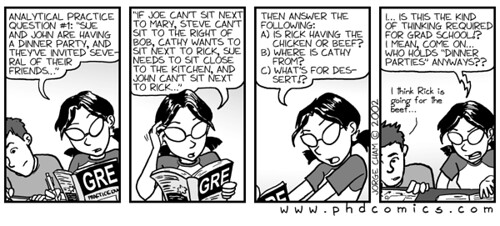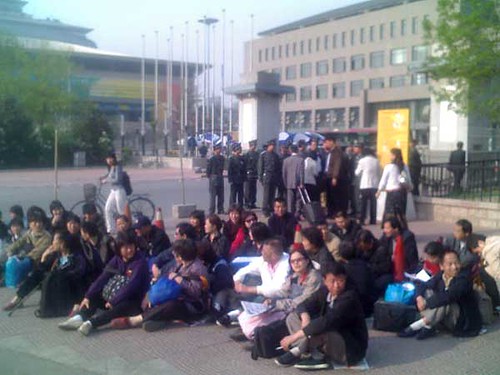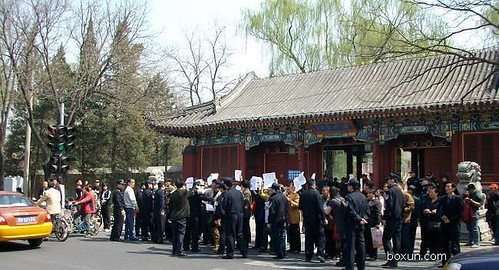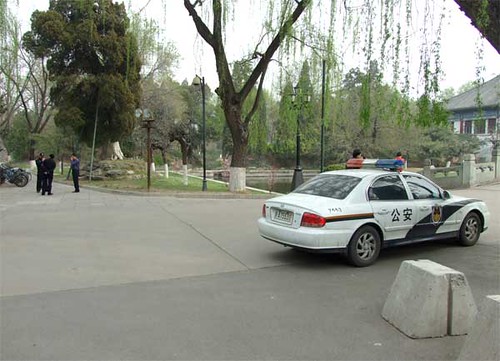The following is an essay written by Jack, a Chinese friend of mine, who studies at Beijing’s Foreign Affairs University and will soon begin a career in China’s Foreign Ministry. He recently translated my father’s book Free World into Chinese (Ziyou Shijie) – which you can now find in Xinhua bookstores.
I will only preface the below with one comment. I believe that the majority of Westerners – even those with little to no knowledge of China – would regard Seeing Clearly‘s comments not as seeing clearly at all, but as hyperbolic mouthing off. There are valid arguments on both sides of the fence to be made on the issues raised here, but loud minorities like Seeing Clearly (or his Chinese netizen equivalents) should most certainly not be the ones to make them.
*
A China in the eyes of a Chinese
My friend Alec asked me to write an article on China. As a matter of fact, in this highly globalised world, there is still a lot of misunderstanding between China and the West. So I am writing this article to hopefully help our western friends know more about China.
About three months ago, the shoe-throwing incident against Wen Jiabao at Cambridge engendered a hot debate online. I followed the debate closely and read comments of some western friends who believed that they knew a lot about China. But their biased comments made me realize that the information they received was very distorted, thus giving them a wrong impression on China. In the following are comments made by a netizen called ‘Seeing Clearly’ after the show-throwing incident on the website of Christian Science Monitor. His views are what I think shared by some other western friends. I have responded to them one by one with the purpose of showing a true China to our western friends.
‘Seeing Clearly’ has the following comments on China:
- To all those zealots so keen to rush to the defence of the Chinese leader, did it ever occur to you that in China anyone who attempts to protest either ‘disappears’ or is stalked for months by the secret police there?
- Do you know that Google colludes with the Chinese government to censor internet content there?
- Do you know that Nike and other sportswear manufacturers contract out production of their goods to vast ‘enterprise zones’ in China and other far eastern countries, where workers live in shacks or converted Pigstys, and have to work up to 16 hour shifts in vast temporary warehouses for a few cents/yen a day, because they are not allowed to have a union represent them?
- If they try to set up a union, all those involved are instantly dismissed, meaning they’re likely to become homeless and end up begging? If anyone persists in unionising, the contractor (i.e. the multinational making out the orders, whoever they may be), cancels the contract, dismantles the warehouse and goes off to another ‘enterpise zone’ in another country, leaving the workers jobless.
- Did you know that any visitors to China wishing to do media coverage of the area have to get offical (Ed: sic) permission to do so, their coverage is vetted by the government and they are tailed wherever they go by ’secret’ police?
- Did you know that any Free Tibet protests within China are mercilessly crushed not only by the police but by the military, and anyone thought to be an organiser of said protests is imprisoned and tortured?
- Did you know that the religion Fulun (Ed: sic) Gong is outlawed in China and practitioners are persecuted?
- I have absolutely no gripes at all with the citizens of China, and I am no racist, but you have to face facts, China’s goverment (Ed: sic) does not believe in free speech in the way that we do, whatever PR they happen to be putting out at the moment.
- In fact, my comment on this article in China would probably result in my arrest and disappearance.
As a Chinese, I really feel that our western friends should come to China and learn more about this country, instead of being misled by some questionable sources and materials.
To the questions raised by ‘Seeing Clearly’, which I believe show, to some extent, the biased views held by some western friends, I would like to respond one by one.
First, if we attempt to protest in China, we will not either disappear or be stalked for months by secret police. What matters is the way we protest. For those who take violent means like burning shops and hurting or even killing innocent people, they will be prosecuted in China, as in any civilized nation, simply because they violate laws. However, if we take civilized ways to make our voice heard, the government will listen to us and get the problem solved. For example, there was a famous incident in recent years, called PX incident in Xiamen city, where many Xiamen citizens organized a ‘big walk’ in protest against a government’s decision to establish a PX factory there, because that would be harmful to the environment. These people informed each other of this activity through short messages and internet bulletin boards, and walked together with slogans calling for stopping building this factory. As a result, the government listened to their appeals and stopped the factory which was expected to create billions of dollars for the locality. Many incidents like this have happened in China. The way that the Chinese government handles them has been changing for the better, and the civil society in China is also learning to carry out more acceptable and effective campaigns to express their views. As a result, the interaction between the government and the civil society is becoming better and better.
Second, censorship used to be, and to some extent is, a problem in China. But the Chinese government has been relaxing its regulation on the society and making itself more transparent. It would be a more reasonable and objective way to look at a country by taking account of its history, tradition, culture and status quo. As Wen Jiabao put it, we are encouraged to ‘see China in the light of her development’. Feudalist society was in place for thousands of years in this country, and regulating the idea of the public for the sake of social stability has been a normal practice for Chinese rulers, be it right or wrong in the eyes of western democracies. Recent years have witnessed dramatic changes in this aspect, particularly after SARS incident in 2003. Censorship has been relaxed faster than many Chinese expected. The coverage on Wen Chuan earthquake and Beijing Olympic Games was so transparent that helped China earn applause of the whole world. In addition, CCTV news at 7 p.m., which has been the official and most authoritative news for the Chinese people, broadcast the whole footage of shoe-throwing at Wen Jiabao at Cambridge. If we do some research, we will find out that every country has censorship. Governments ban contents that are in violation of laws in their countries. For example, the Chinese government has been banning pornographic websites and websites doing propaganda of Tibetan secession. This kind of censorship has won great support from the Chinese people. Freedom is not absolute or without limits, so the key point is to strike a balance. And this is the direction that we are moving toward.
Third, ‘Seeing Clearly’ depicted a grim picture of the Chinese labor, but the fact goes in the opposite direction. On the one hand, labor-intensive industries are what China needs at the current stage, largely due to employment and education considerations. China has a population of 1.3 billion, and urbanization is an irreversible trend, meaning more and more rural residents are migrating to urban areas. But due to lack of educational resources, these people don’t have high enough education, and many of them even haven’t finished high school. Labor-intensive industries could provide jobs to these less-educated people. When these people get jobs in cities, they need to start from the scratch, resulting in poor living conditions. And the government has been carrying out measures to accommodate the needs of the migrant workers, for example, setting up affordable residential areas for them and providing accessible education to their children. On the other hand, the Chinese government enacted a very strict labor law in recent years in an effort to eliminate acts harmful to the interests of migrant workers, such as delay of payments. As a result, some multinationals are leaving China, simply because the cost of labor in China has been unaffordable. We can find a lot of such examples in Guangdong, Zhejiang, Shandong, as well as many other provinces which used to be heaven for multinationals to build manufacturing centers.
Fourth, unionizing is a trend in China in recent years. For example, union members in Walmart negotiated with the company on their payment. Many companies in China are having strong unions to represent the interests of workers. In addition, the media and the civil society have been doing a better and better job to help the vulnerable and disadvantaged workers. For example, a group of university students from Hongkong revealed the bad labor conditions in Nine Dragons Paper company, a leading paper-making company in China. This company has been under severe criticism and forced to make changes.
Fifth, journalists don’t need to get official permission to report in China, nor will they be vetted or tailed by anybody, according to a provision issued on Jan. 1st, 2007. If we ask our western journalist friends based in China this question, I believe they will tell us how big the changes are in recent years.
Sixth, on the question of Tibetan protesters, echoing my first point, we need to differentiate among the protests. Protests without violence are allowed in China, as in the rest of the world, for example, the Xiamen PX incident, Chongqing taxi incident. However, violent protests, as what happened in Tibet on March 14th, are outlawed, which is the same as the rest of the world. Criminals must be prosecuted, simply because they burned houses and hurt people, for example, some protesters even beat Jin Jing, a handicapped girl in wheelchair, to grab the Olympic torch during the relay in Paris. These people must be criminalized, because their acts are against human conscience and violate laws.
Seventh, Falun Gong is not a religion. Their leader Li Hongzhi used techniques to make fake pictures, in which he was sitting in a lotus like a saint. He didn’t allow practitioners to take medicine, because practicing FaLun Gong would be enough to cure their diseases. However, records showed that Li Hongzhi himself went to hospitals when he was ill. Lies like these are numerous. Some practitioners even killed themselves in order to find the so-called ‘Falun’, meaning a sacred circle in Chinese, in their bodies. China bans cults that lead people to commit suicide and make them perverted, but we respect real religions. In China, there are over 100 million religious believers. As an Olympic volunteer working for the Kenyan team, I was able to see that even the Olympic village has a religious center, providing service for athletes and officials.
Last but not least, we will certainly not be arrested or disappear due to making comments. China recently adopted its Human Rights Action Plan, which clearly protects the right of comments.
Generally speaking, I admit that there is still a long way to go for China in all aspects. We welcome criticisms which can press us to move forward. But criticisms should be based on sources which reflect the real condition in this country. A big problem I am finding in western countries is that many western friends are criticizing China based on totally wrong information, and this will make our misunderstanding even worse. Dear ‘Seeing Clearly’, as well as other western friends who are holding similar views on China, you may not know as much as you thought or see as clearly as you expected. Please come to China and see this country with your own eyes, you will find that many of the views or images that you once held on this country have been wrong. And I’m sure you will like the real China.





